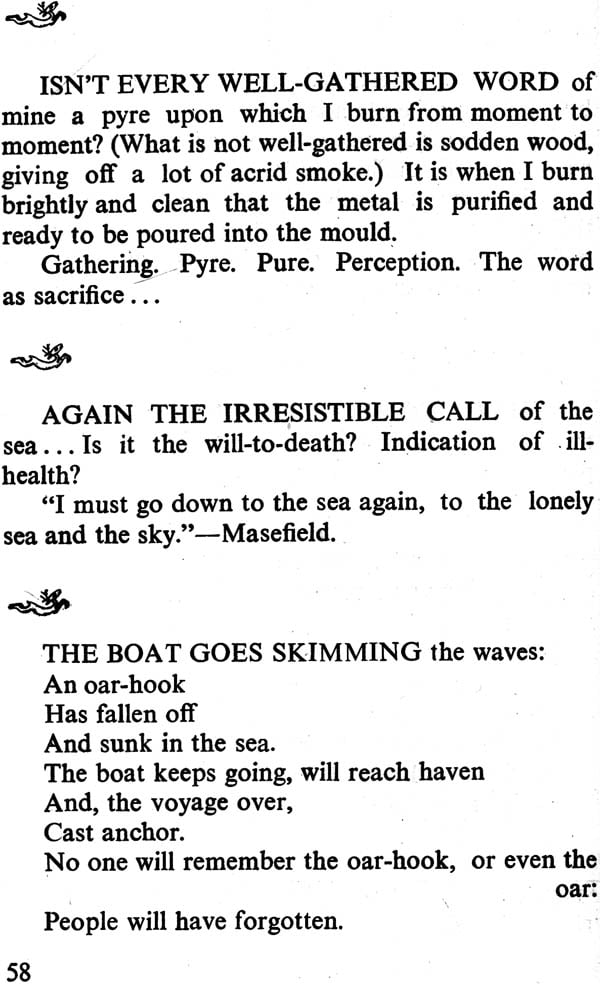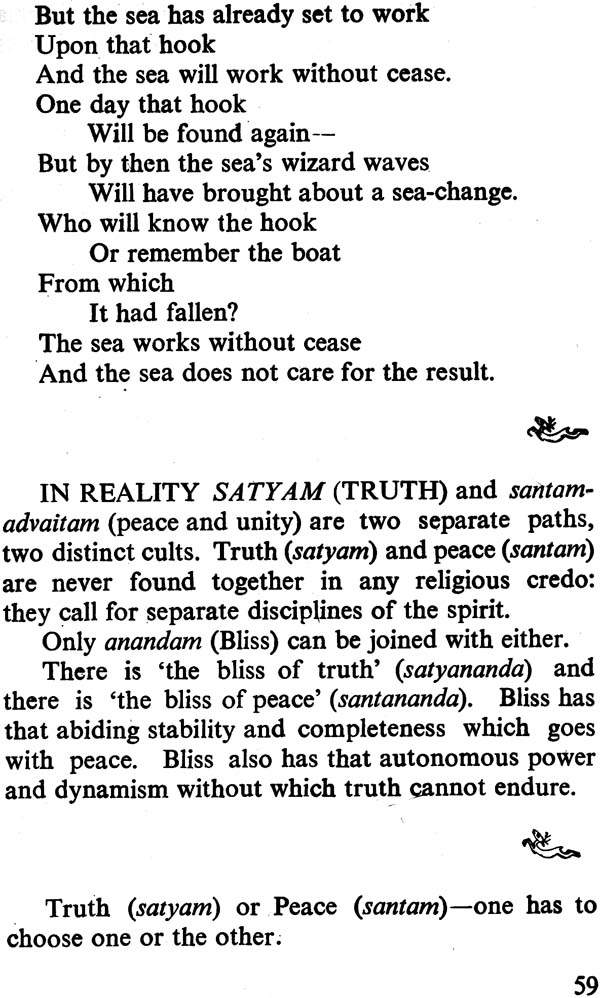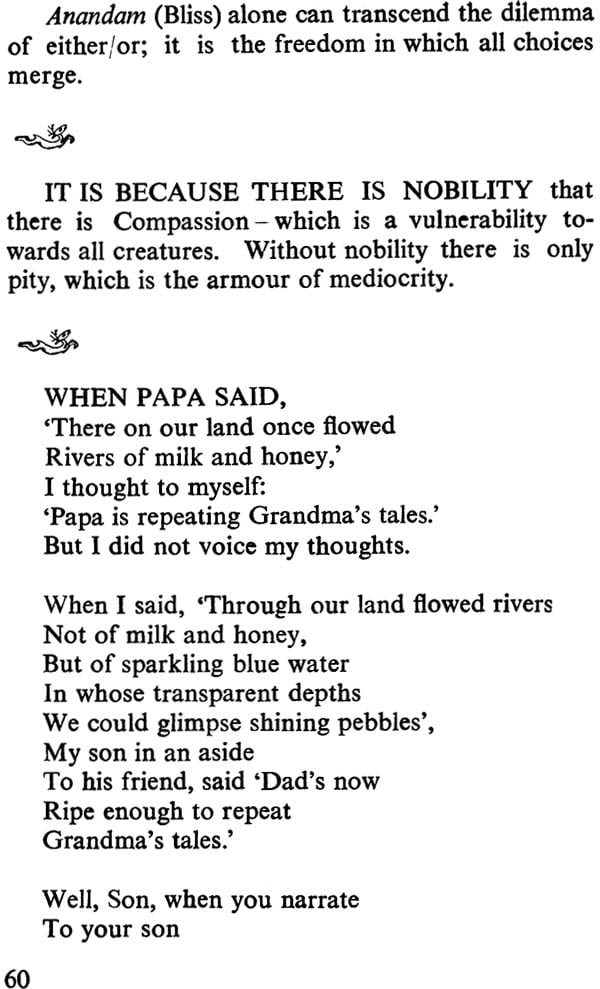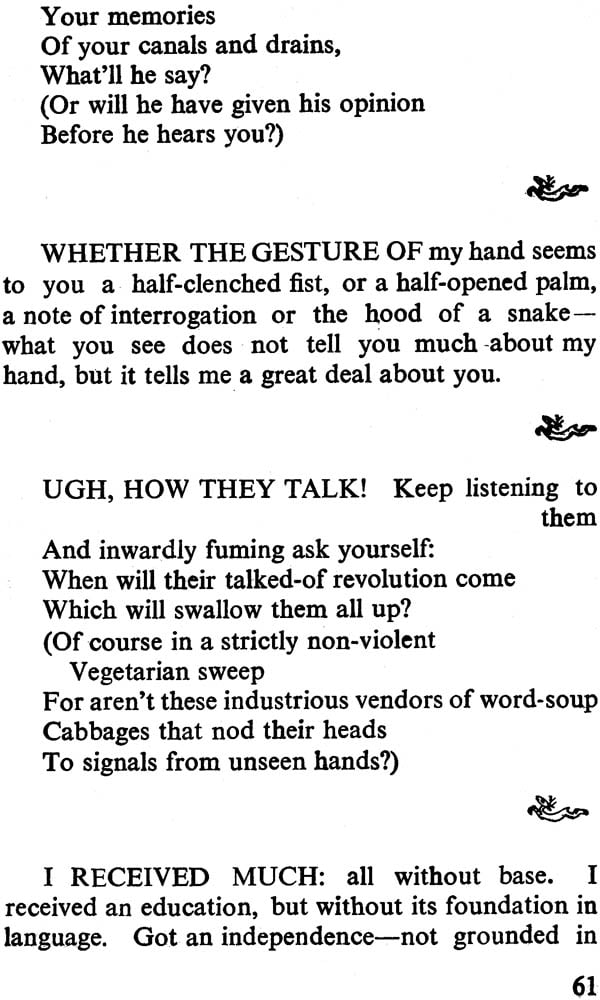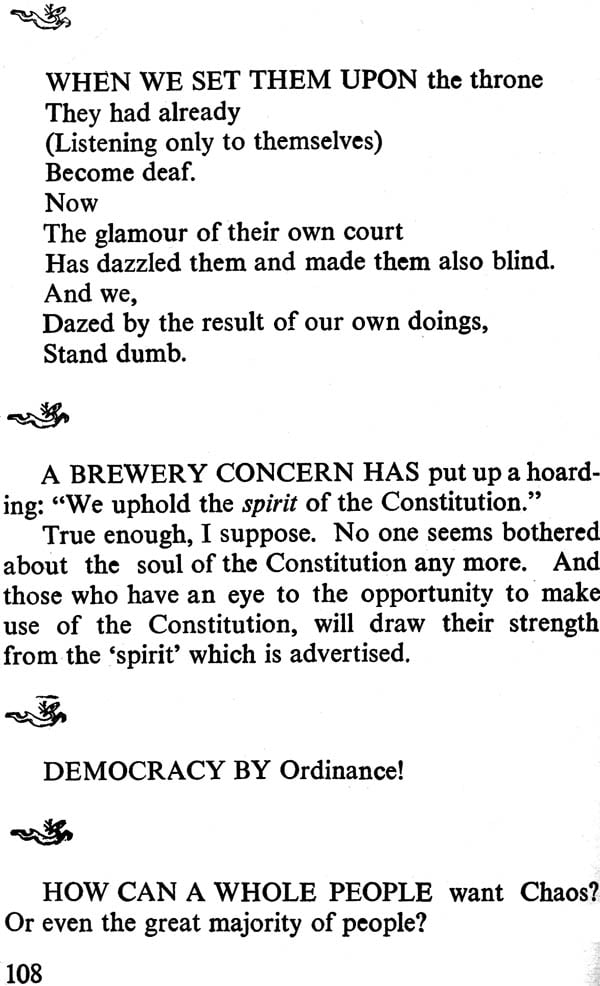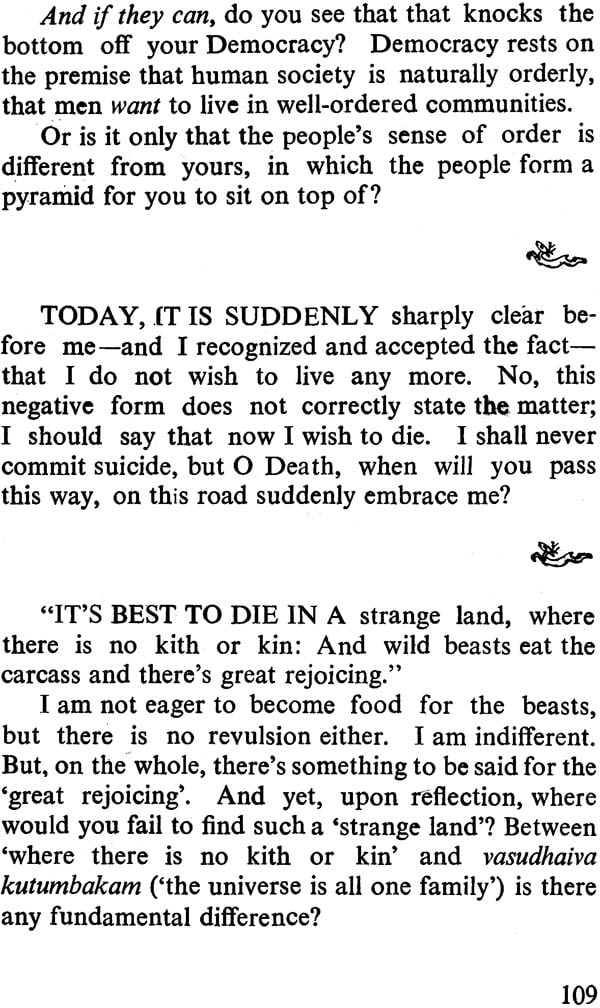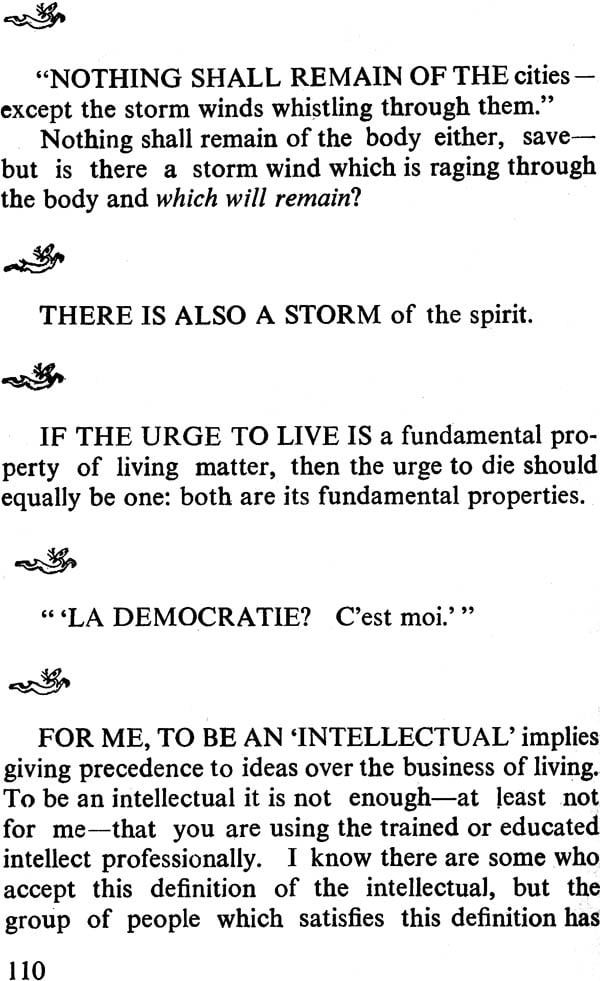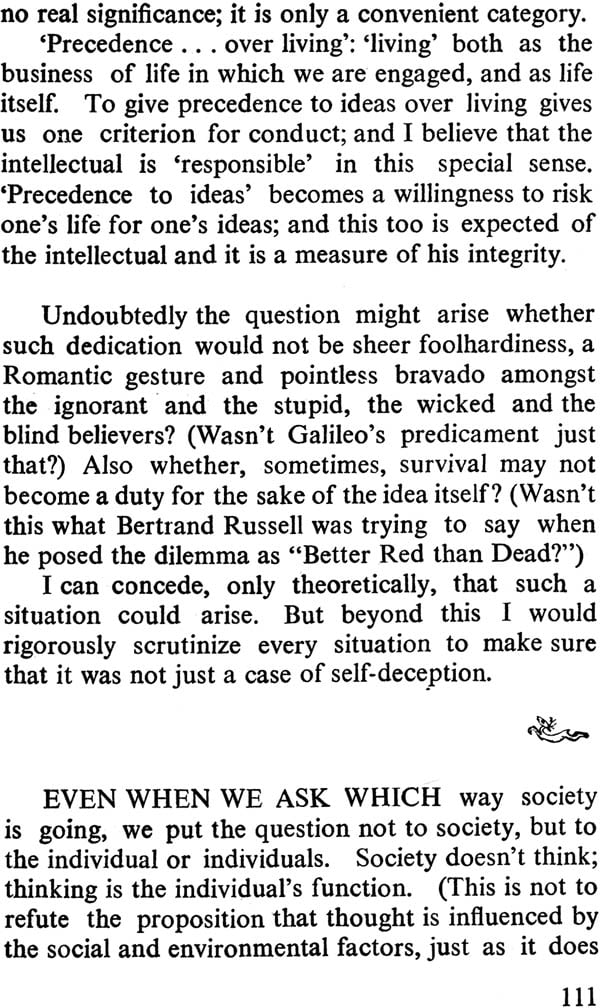
Preparing The Ground (Ajneya)
Book Specification
| Item Code: | IDK600 |
| Author: | Sachchidananda Vatsyayan Ajneya |
| Publisher: | Abhinav Publication |
| Language: | English |
| Edition: | 1984 |
| ISBN: | 8170171881 |
| Pages: | 120 |
| Cover: | Hardcover |
| Other Details | 8.5" X 5.5" |
| Weight | 280 gm |
Book Description
Preparing The Ground is a second collection of Leaves from and Undated Diary, which appeared in Hindi under the title ANTRA in 1975. The first collection, BHAVANTI in Hindi (1971), was published in translation as TRUCULENT CLAY in 1982. Neither a compilation of impromptu jottings form a writer's field-book, nor a diary recording day-to-day events in a writer's life nor studied epigrammatic utterances nor again a collection of miniature personal essays both BHAVANTI and ANTRA sought to be all these and yet more: an attempt to present and integrated vision of the writer's struggle with his medium defined in the widest sense as including the tools of his craft his literary social spiritual environment his interaction with his contemporaries and with their pet ideas. What the author was attempting to do in these series of what he has variously described as inscapes interior events inward journeys and dateless journals was to present in an apparently loosely strung yet integrated form the writer's world both as subjectively experienced and as objectively viewed and evaluated but to present these processes in their simultaneity and immediacy.
The books though their first reception was subdued and even somewhat bewildered have risen steadily both in critical estimation and in popular regard. Well read and often quoted they have also taken their place as classics of their kind even though the author continues to be a focus of controversy as he has been for four decades.
Preparing The Ground is a translation by Manas Mukul Das (with revisions by the Author) of the second volume of the dateless journals -ANTRA. As in the case of the first series a number of entries have had to be omitted on account of their untranslatability verses lampooning the author's contemporaries and their foibles witticisms based on current Hindi usage etc. but what remains is still an authentic and representative translation. For readers who do not have access to Hindi, PREPARING THE GROUND will provide an exhilarating view not only of the author's mind but also of the contemporary literary scene in India.
Ajneya (sachchidananda vatsyayan in civil life) lives and works in Delhi. Poet. Novelist essayist short story writer editor journalist and commentator he has had a varied career having spent a few years in a British prison as a revolutionary in the thirties and seen active service in world war II. He has travelled extensively in Europe Asia and America and help Visiting Professorships in USA and West Germany.
His published work includes work includes over a dozen volumes of poetry, four novels several volumes of short stories essays and travelogues.
He was received the National Academy award the Jnanpith award and the Struga International award for poetry as well as several awards for fiction and nonfiction writing. Translations have appeared in German Russian Swedish Italian Serbo-Croatian, Macedonian and Slovenian besides English.
MANAS MUKUL DAS is Associate professor of English in Allahabad. He has published a study of Thomas Hardy and is a corresponding member of the Hardy society.
The dateless diaries from which these selections have been made written mostly in Hindi, but a few entries were made originally in English or in other languages. ANTARA, the Hindi book from which these translations were made was published in 1975 and contains jottings made during 1970-74. Despite the absence of dates and a precise chronology readers acquainted with development in India during that period will be able to link many of the to recognize where the author's sympathies lay.
PREPARING THE GROUND is not however a complete translation of ANTARA: a number of passages had to be omitted. No principle of selection was involved: the passages were simply untranslatable. It is hoped: that after all is what translations should seek to achieve.
